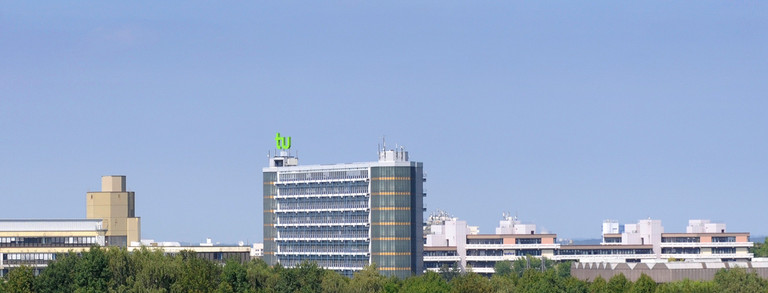“A Wide and Varied Alumni Network Can Generate Very Different Projects and Connections.”

Mr. Quelle, why did you study at TU Dortmund University – at that time still the University of Dortmund?
Do you want an honest answer or a polite one?
An honest one, of course.
The honest answer is – it was my second choice. Although I’m from Dortmund, in fact I wanted to study medical informatics in Heilbronn because it was the only place in the mid-1980s to offer that degree program. Unfortunately, the entry requirements were too high, but I nonetheless still wanted to study computer science. Since the University of Dortmund already had a good reputation in this subject at that time, I enrolled there in 1986. And fortunately, thanks to its collaboration with Ruhr University Bochum, I could even choose medicine as my minor subject.
What was different back then in comparison to today?
Studying was still characterized by a great deal of freedom. At that time, there were more or less only oral exams in computer science and no compulsory attendance. To put it bluntly: I’d say the heat was off. And I really enjoyed having the time to discover more about myself. That also shapes you, when you don’t spend all your time just studying but also broadening your horizons.
How did your studies shape your life and your career path?
Accepting that university is altogether different than school had been, that it takes a lot of personal initiative – this was a process. I learned during that time how to handle this freedom, how to get myself organized and how to reconcile my studies with my work and my free time.
I also had a stroke of luck: In 1990, I saw an advert on South Campus that had been posted by Mandat management consultants, who were looking for a student to join them. I started working there, 20 hours a week. Later, after I’d finished university, I got a permanent job there. At that time, I would never have guessed that Mandat would be the company where I would one day become managing director, co-partner and sole owner. In the meantime, I’ve sold 20 percent to colleagues, but I’m still the majority shareholder. That did indeed shape my life and my career path.
Do you have any other very special memories of your time at the University of Dortmund?
The best days were indeed my exams. In computer science these were above all oral ones. It was always great when the examiners said: “You’ve passed”. I also did my doctoral degree there, in logistics at the Department of Mechanical Engineering. The best moment was on 8 August 2003, when I successfully defended my dissertation.
Do you have a favorite place on campus?
I always liked the math building. Up on the tenth floor we had the broadcasting station of the University of Dortmund’s amateur radio club. At that time, there was a gigantic antenna on the roof that allowed us to communicate with the whole world.
How do you feel about Dortmund as a city?
Among other things, I’m actively involved as chairman of the board of the Dortmund Foundation, which endeavors to foster knowledge and skills among young people in Dortmund. For this, you need creative project partners – and Dortmund is really strong here: We’re good at pursuing objectives together and across party lines in business, politics and administration. We’re good at improvising – after all, Dortmund has had to do this since the 1980s – and at reinventing ourselves now that the key industries of steel, coal and beer have disappeared. Lake Phoenix, for example, which celebrated its tenth anniversary on 9 May 2021, is a milestone here.
You’re a member of TU Dortmund University’s alumni network. What do you particularly appreciate about it?
I find an alumni association that spans the entire university exciting – and important. Whether help with a master’s thesis, job recommendations or exchanging news on research projects: A wide and varied alumni network can generate very different projects and connections. At the same time, it reinforces a sense of community, and you have a lifelong attachment to your alma mater – that’s fantastic. I believe that we can also learn a lot here from the USA, where such networks are properly nurtured and used more than they are here in Germany. Personally, I’m looking forward to future activities within TU Dortmund University’s alumni network.





![[Translate to English:] Partner Four hands are holding the green logo of TU Dortmund University](/storages/tu_website/_processed_/1/d/csm_Partner_Nicole_Rechmann_KW_670eba0154.jpg)




![[Translate to English:] Forschung An apparatus with tubes in a laboratory](/storages/tu_website/_processed_/0/c/csm_Forschung_Juergen_Huhn_4fa3153b51.jpg)
![[Translate to English:] Studium Five students are sitting in a lecture hall. They are talking to each other.](/storages/tu_website/_processed_/c/9/csm_Studium_FelixSchmale_dbdbfb0dd7.jpg)





